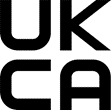September at-a-glance … environment
Swedish firm develops first carbon-free steel
Sweden’s HYBRIT announced that it has produced the world’s first carbon-free steel. Traditional steel is created in blast furnaces using coking oil to melt iron ore. According to the World Steel Association, this process produces about eight percent of the world’s greenhouse gas emissions. The new “green” steel eliminates the blast furnace process, melting iron ore with hydrogen produced from water using electricity from fossil-free sources. Automaker Volvo is testing the new steel.
First zero-emission, crewless cargo ship in test; methanol-powered ships also on order
The future of ocean freight is being evaluated in Norway by chemical company Yara International that plans open water testing this year of its new zero-emission, autonomous cargo ship. The new ship can carry 103 containers and has a top speed of 13 knots. According to the International Maritime Organization of the United Nations, the shipping industry currently accounts for two to three percent of global greenhouse gas emissions.
Maersk, the world’s largest shipping company, also ordered eight container ships that can be powered by green methanol and traditional fuel. The new ships are expected to save more than 1 million tons of carbon emissions a year. Each ship is expected to have a capacity of 16,000 containers and will be ready by early 2024.
Manufacturers now have until 2023 to incorporate UKCA mark on products

The U.K. has extended until Jan. 1, 2023, the requirement to place the UKCA (U.K. Conformity Assessed) mark on products subject to U.K. legislation. The UKCA mark is similar to the CE mark required on products subject to E.U. legislation. The Trade and Cooperation Agreement (TCA) that followed the U.K.’s departure from the E.U. requires the UKCA mark for tariff-free passage of goods. Products can include both marks if they concurrently comply with E.U. and U.K. regulations. More information is available on the gov.uk website.